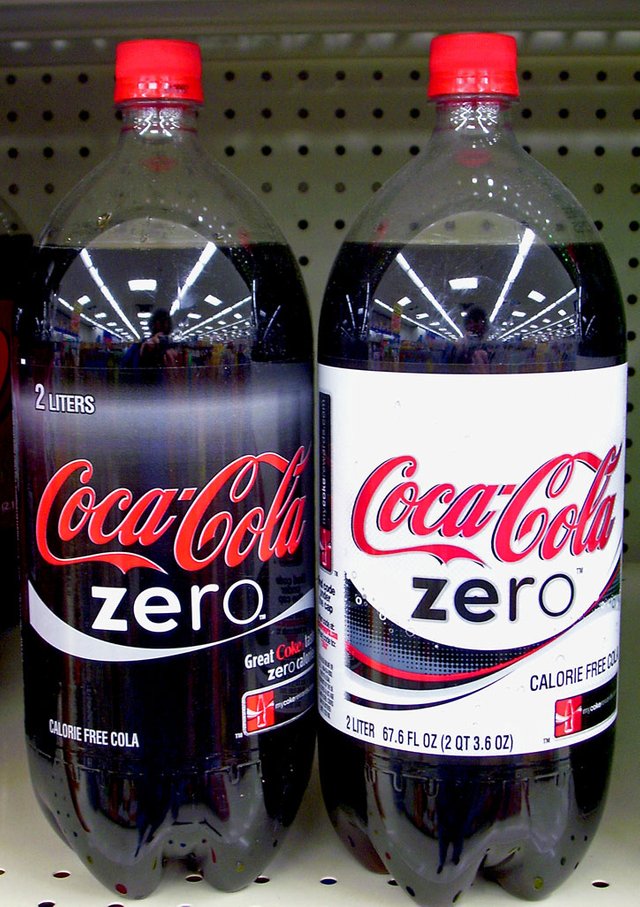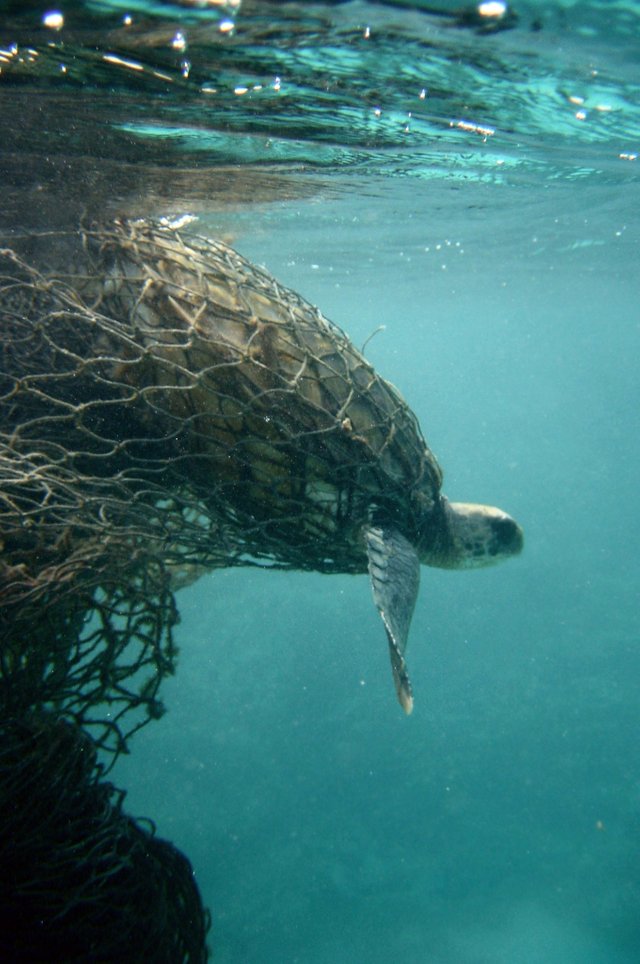Why does it take so long for plastic to decompose when throw into nature?
While I grew up I was always told to not throw plastic in the nature because it would take a very long time for it to decompose, and I’m sure most of you have been told similar things by your parents or teachers. But have you ever wondered why it is taking plastic so long to decompose compared to wood, food or other materials? I have always just accepted this fact without questioning it, but in this post I want to shed some light as to exactly why plastic is so slow to decompose in nature.

How long will it take for these bottles to decompose if they were thrown into nature? Image by Daniel Case at the English language Wikipedia, posted with the GNU Free Documentation License.
We honestly do not even know exactly how long it takes plastic to decompose in the wild. Some estimations are around 70 years, while others are closer to 450 years. These estimations could even be wrong, and we will just have to wait and see to find out. Plastic have only been available in the last 70 years, so we just do not know yet.
Plastic is usually made from a chemical composition called polyethylene terephthalate, usually just shortened to PET or polyester. This compound is a polymer, just like the main composition of cellulose (the main part of wood and paper), and plastic should in theory not be much more difficult to break down than cellulose.
At this point you probably wonder why it takes so much longer to break down plastic than wood, and the answer lies in a unicellular friend of ours; the bacteria. There are many different cellulose-eating bacteria that have coevolved alongside with cellulose, and specialized during this process. Since plastic is synthetic and pretty new, very few bacteria have the ability to biodegrade the plastic polymers into smaller molecules.
There are at least one known bacteria that is able to break down the plastic, but this is not normally found in the places we tend to throw away our plastic. And without this bacteria there is no biodegradation on the plastic to break it down.
How does the plastic even break down if there are no bacteria to break it down?
Theoretically we could argue that the plastic would stay there forever because there are no microorganisms to break it down, but luckily there are other mechanisms to break the plastic down into smaller molecules. The main mechanism that degrade the plastic is photodegradation, where UV rays from the sunlight (or other light) break down the bonds holding the molecular polymer chain together. This breaks it down into many smaller pieces, and eventually into very small molecules that can be used by plants or microorganisms. This is of course good, but this process is a lot slower than if we had bacteria to help us!
A big problem with the photodegradation is that it requires sunlight, so if the plastic is buried it could potentially stay there for an extremely long time! The plastic actually breaks down a lot faster if it’s floating in water, and some reports claim that plastic can be broken down by photodegradation by floating a year in the ocean. However, you should not throw plastic into the ocean to recycle it. Ocean plastic is a huge problem for marine animals who can be stuck in it, or get sick from eating it. Roughly half of all the plastic will even sink to the bottom of the ocean where there is virtually no sunlight to break it down, so it could stay there for a very long time!

A sea turtle that got stuck in a plastic net. This is a very big problem for all sea turtle species, along with many other marine animal species. Image by Doug Helton at NOAA, posted as Public Domain.
So maybe we should listen to our parents and not throw plastic in the nature after all
I hope you can agree that throwing plastic in nature is bad after reading this, and if your country have a plastic recycling program you should make sure to make good use of it. Some places have a small scale plastic recycling, but generally most plastic just gets burned in order to not ruin nature or get dumped into the ocean. Hopefully bacterial recycling of plastic is possible in the future, but at this point there are still a few challenges to overcome before it’s viable.
TLDR
For the lazy ones: plastic is a newly created synthetic compound, so no bacteria have evolved to be able to break it down.
Thanks for reading! I hope you learned something new :)
Genetically speaking, the bacteria have a hard time adapting their processes of digestion not only because of the relatively short time frame for which plastics have existed, but also because they are very complex on a molecular level. Take for instance, methane, a common waste product of bacteria. A single molecule of methane has one molecule of carbon and four molecules of hydrogen. In contrast, some polymers have 30+ molecules of carbon, hydrogen, and/or oxygen.from this point of view, its easy to see why the bacteria have a hard time making the switch.
Thank you for commenting with additional information! This makes a lot of sense, and I'm sure developing the ability to break down complex molecules takes more time than evolving into being able to break down smaller molecules.
Great article! We should all be trying to lessen our dependence on plastics! Start by taking your own bags when you go shopping!

Yep, that is a great start! I always try to bring my backpack as well as a shopping net, and my plastic bag consumption has been reduced a whole lot already. Thanks for the comment!
Hi @valth,
Think you might have a wrong tag (sustainability) just letting you know :)
You should see the recycling in Japan! They really do it to such an amazing standard.
All the best, enjoyed reading your post.
Hi, thanks for letting me know! Seems that I let a type slip in there.
I've never heard about how they deal with recycling in Japan, but I'll make sure to Google it to see how it is ;)
Wow! This post is really interesting! My parents always told me the same: Don't throw your garbage into the nature, but this is unbelievable! I can't believe how long it takes - very interesting!
It's important to take care of the environment, but even though everyone knows that this is bad for the nature, a lot of people throw their plastic into the ocean or just leave it behind somewhere. It isn't too much work to just recycle it, right?
Thank you for sharing this post with us & hopefully more people will read it and make sure to take care of our planet :)
I think the biggest problem is that people are just lazy, or just don't care. I know of a lot of people who won't be bothered to put the plastic garbage in their pockets or whatever until they reach a bin, and instead just throws it away.
I'm glad you liked the post! Thanks for commenting :)
Good post
Thank you!
https://steemit.com/curation/@steemwizards/steemwizards-curation-trail-day-15-and-competition-join-the-magic
Join us on #steemSTEM / Follow our curation trail
Thank you for this very interesting article. It has been advertised on our chat channel (and upvoted).
The steemSTEM project is a community-supported project aiming to increase the quality and the visibility of STEM (STEM is the acronym for Science, Technology, Engineering and Mathematics) articles on Steemit.
@valth got you a $3.45 @minnowbooster upgoat, nice! (Image: pixabay.com)
Want a boost? Click here to read more!
https://steemit.com/curation/@steemwizards/steemwizards-curation-trail-day-15-and-competition-join-the-magic
Thank you! :)